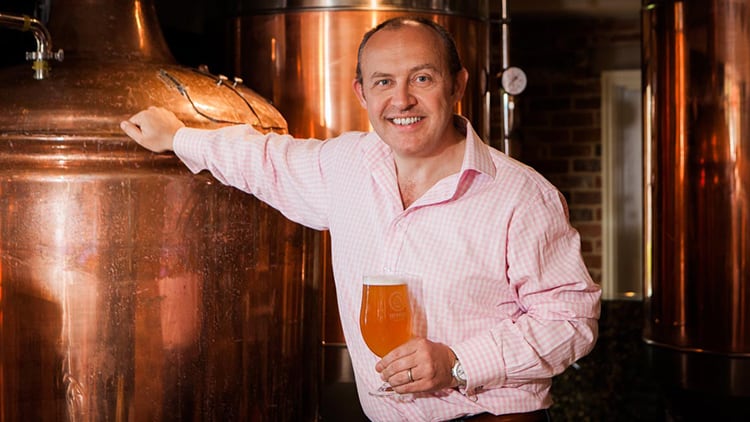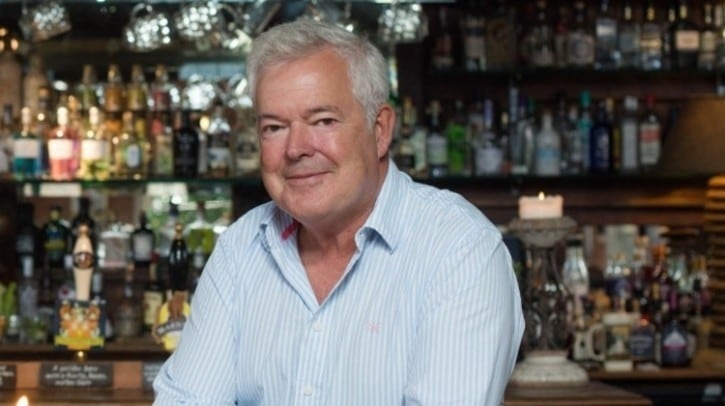I’ve always believed hospitality is a skilled profession – one that should be properly rewarded through fair, competitive pay, not reliant on add-ons.
But now, nearly 25 years later, I find myself having to go back on that principle.
Like many independent hospitality businesses, we’ve reached a financial tipping point.
Rising costs, years of stagnant policy support and increasing wage bills have forced our hand.
From Wednesday 16 July 2025, the Olive Branch introduced a discretionary 10% service charge on all dining bills.
It’s not a decision we’ve taken lightly. But for the sake of our team, our guests and our future, it’s a step we must take.
A pub with pedigree – and pressure
The Olive Branch has been fortunate over the years. Set in a small Rutland village, we’ve held a Michelin Star, been named Pub of the Year by The Good Pub Guide, GQ Magazine and The Times, and won countless other awards.
Five years ago, our overheads represented around 10% of turnover. Today, they’re 25%.
We’ve always tried to blend country inn charm with top-quality food and drink. But like many others, we’ve felt the squeeze in recent years – and being a successful, much-loved pub doesn’t make you immune to economic reality.
Five years ago, our overheads represented around 10% of turnover. Today, they’re 25%.
Our payroll, which once accounted for 35% of our turnover, now stands at 45%. Meanwhile, food costs, energy, interest, and business rates continue to rise.
We hoped for help in the form of a restructured business rates model or a hospitality VAT reduction – or at least zero VAT on food, to bring us in line with supermarkets. But none of that has happened.
The pay imbalance
We support the rise in the minimum wage and the lowering of the national living wage age from 23 to 21 – but it has created another imbalance.
Junior team members at the Olive Branch have seen a pay increase of 37% in five years, from £8.91 to £12.21 per hour. Senior team members, on the other hand, have only seen a 5% rise over the same period.
When you factor in increased employer pension contributions and national insurance, that wage pressure becomes unsustainable. Unless we can find new ways to protect and reward our senior professionals – the lifeblood of our kitchen and front-of-house teams – we risk losing them. And that would be a loss not just to us, but to the future of our industry.
Why service charge?
As service charge doesn’t incur VAT and, when distributed through a tronc system is exempt from NI, it makes it one of the few tools we have left to support team pay in a meaningful way.
We’ve resisted using one for years – but now, if we don’t utilise the tax efficiencies of discretionary service charge, we may not be here in six months.
At the moment, we are only adding service charge to dining bills and not drinks across the bar or lighter snacks. However, when we do see a need to increase our drinks prices further, we may consider adding 5% discretionary service charge rather than a straight 5% plus VAT.
We’re not alone
We’re not sharing this to complain, but to contribute to the wider conversation. Because if this is the position a multi-award-winning pub finds itself in, what does that say about the long-term sustainability of our industry?
There’s no easy fix, but there is a need for change – in policy, in public perception and in how we support the skilled professionals who make hospitality what it is.
This situation is due to successive Governments’ lack of knowledge and consideration for the hospitality industry’s VAT and NI rules.
Currently, it appears we are following the American model, where most hospitality professionals are paid minimum wage, supplemented by your share of an increasing service charge – now 12.5% in London. And no doubt that will increase, with more card machines asking you to rate the service – 10% good, 15% very good, 20% excellent.
This situation is due to successive Governments’ lack of knowledge and consideration for the hospitality industry’s VAT and NI rules. Service won’t be seen as a proper job; employees will struggle to get mortgages, etc and professionalism within the industry will die.
The more sensible alternative approach would be to follow the French route: reduce VAT on food, make 15% service charge law, deduct the VAT from that, and ensure that hospitality professionals are paid a proper wage. We should not rely on the discretion of the customer, the amount of service charge the employer decides to add, and what is perceived by many customers to be a tax loophole.
In the meantime, we’ll keep doing what we do best: serving great food and drink, with warmth and pride, in the heart of rural Rutland.
And we hope our guests – and the wider industry – will understand why, for the first time in nearly 25 years, we’ve had to add service charge.




